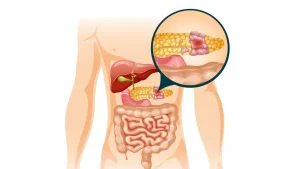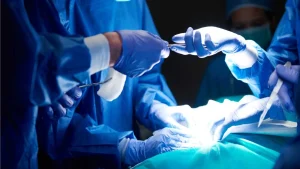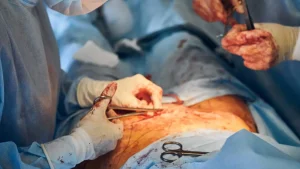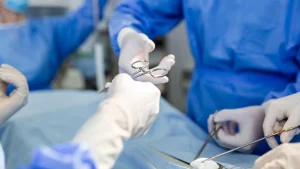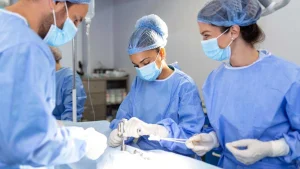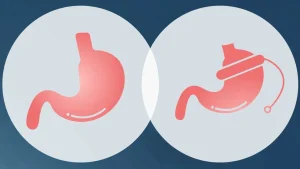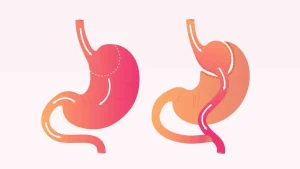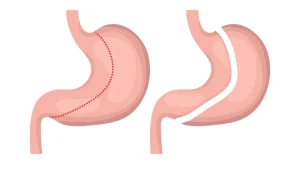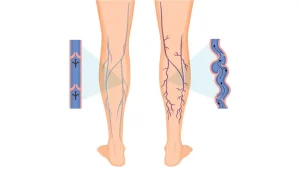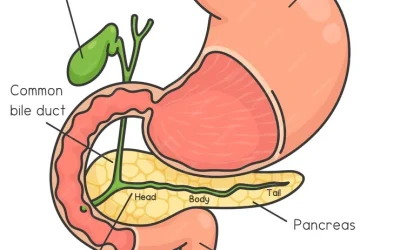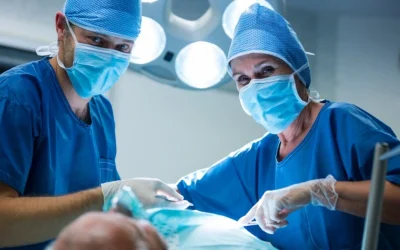Appendix Surgeon in Goregaon

Overview
If you are experiencing pain or discomfort in your abdomen, it is possible that you may have appendicitis – a condition that requires prompt medical attention. Our experienced team of surgeons specializes in performing appendix surgery using the latest techniques and technologies to ensure the best possible outcomes for our patients.
We understand that undergoing surgery can be a stressful and overwhelming experience, which is why we are committed to providing compassionate care and support to help you through every step of the process. Here, you will find information on what to expect during appendix surgery, the benefits of laparoscopic surgery, and more. Contact us today to schedule a consultation and learn more about how we can help you get back to feeling your best.
Appendix Surgeon in Chembur
What is Appendix Surgery
Appendix surgery, also known as an appendectomy, is a surgical procedure to remove the appendix. It is typically performed in cases of acute appendicitis – an inflamed and infected appendix that can cause serious damage if not removed promptly.
An appendectomy involves making an incision in the lower right side of the abdomen where the appendix is located and removing it, sometimes with other surrounding tissues.
The importance of appendix surgery cannot be understated as it can help treat abdominal pain and infection caused by acute appendicitis.
Prompt removal of the appendix prevents it from bursting which could lead to further complications such as widespread infection throughout the abdomen. Additionally, prompt diagnosis and treatment may help prevent more serious consequences such as peritonitis (inflammation of the peritoneal cavity).
Common Symptoms of Appendix
Common symptoms of appendix issues include abdominal pain, nausea and vomiting, fever, loss of appetite, constipation or diarrhea, and a swollen abdomen. In some cases, individuals may also experience the sensation of feeling unable to pass gas, sharp pains when urinating or lower back pain on the affected side.
These symptoms are caused by infection that can spread from the appendix to other organs in the abdomen if it is not removed promptly. Swelling can be indicative of an inflamed appendix as well as infection in the lining of the abdominal wall (peritonitis).
It is very important to seek medical attention for any signs and symptoms of appendix issues. Delaying treatment increases the risk for complications such as peritonitis which could become a life-threatening condition if left untreated. Early diagnosis and prompt treatment through surgery can help avoid more serious outcomes.
Diagnosis of Appendix Issues
Appendix issues are typically diagnosed through a physical examination and a review of the patient’s medical history. Depending on the results of these, further tests such as an ultrasound, CT scan, and/or blood tests may be conducted to confirm the diagnosis.
Ultrasound imaging is used to create images of internal organs which can help identify an enlarged appendix. A CT scan is also used to create detailed 3D images of internal organs that can identify areas of infection or inflammation in the abdominal area. Blood tests can be performed to measure the white blood cell count which is often elevated due to an infection.
Early diagnosis and prompt treatment of appendix issues is important for reducing risks associated with complications such as peritonitis or a burst appendix.
Types of Appendix Surgery
There are two main types of surgery used to treat appendix issues: open surgery and laparoscopic surgery.
-
Open Surgery:
It involves making a single incision in the abdomen to gain direct access to the appendix. This method can be beneficial for more complex cases, as it allows the surgeon better visualization and more precise control when removing the appendix. The risks associated with this method include risk of infection, blood loss and longer recovery times due to general anesthesia.
- Laparoscopic Surgery:
It offers a minimally invasive alternative by using several small incisions instead of one large one. A small camera is inserted through one of these holes so that surgeons have a clear, magnified view of the organs inside the abdominal cavity. Additionally, laparoscopic appendectomy typically leads to less postoperative pain, shorter hospital stays and quicker recovery times than open surgery. However, there may be some limitations if advanced procedures are necessary or if it’s not possible to locate the appendix through the camera.
Benefits of Laparoscopic Surgery Over Open Surgery
Laparoscopic surgery offers a number of advantages over open surgery, including:
- Less postoperative pain since smaller incisions are made.
- Shorter hospital stays as the procedure can be done quickly under general anesthetic.
- Faster recovery times due to the smaller incisions and less postoperative pain.
- Reduced risk of infection since only small incisions are made.
- Increased precision due to the magnification of the camera which allows surgeons to locate and remove the appendix accurately and efficiently.
Preparation for Appendix Surgery
Preparing for appendix surgery should involve following your doctor’s instructions and taking the necessary steps to ensure a safe and successful procedure.
Generally, patients are advised to not eat or drink anything for 8-12 hours prior to the surgery. Medications may also need to be adjusted; it is important to check with your doctor as soon as possible regarding specific instructions.
On the day of the surgery, it is important to arrive on time at the hospital with all relevant medical documents including insurance information. It is also advisable to have someone accompany you who can take you home after the procedure is finished.
After the surgery, it is essential to follow postoperative care instructions which may include rest, pain management (if necessary), hydration, regular follow up visits with your doctor, and certain lifestyle modifications depending on your individual case.
Recovery from Appendix Surgery
Recovery from appendix surgery generally takes 2-3 weeks and involves taking necessary precautions to avoid complications.
Immediately after the procedure, pain management can be handled through oral or intravenous medications as prescribed by your doctor. It is also important to pay attention to wound care such as keeping the incision site clean and checking for signs of infection such as redness, swelling, and discharge.
For the first few days, you may experience some discomfort but should gradually improve with time. Exercising lightly can help reduce pain and inflammation, however strenuous activity should be avoided until advised by your doctor. Your doctor will monitor your progress during follow up visits and will adjust physical activity accordingly depending on your individual case.
Once you are feeling better, return to regular activity can resume gradually; it may take a few weeks before returning to pre-surgery levels of activity. Following instructions from your physician carefully is essential for a successful recovery process.
Risks and Complications of Appendix Surgery
Appendix surgery is generally safe and complications are rare, however like any procedure, there are potential risks that should be taken into consideration.
One of the more common complications is bleeding which may require additional surgical intervention. Infection can also occur in the wound site or nearby organs, causing redness, swelling, and discharge. Other possible complications include damage to surrounding organs or tissues, damage to the appendix during the operation, and hernia formation near the surgical site.
To minimize risk, it is important to follow pre-operative instructions such as mindful fasting and medication adjustments. Postoperative care should also include paying attention to wound care and following activity restrictions as advised by your doctor.
The patient’s health status before surgery also plays an important role in minimizing risks; conditions such as diabetes or obesity can increase the chance of complications occurring during or after surgery.
If complications do occur, medical intervention is necessary for proper management; it is essential to follow instructions from your doctor carefully regarding treatment course and post-treatment care.
Appendix Operation Cost in Mumbai
Appendectomy surgery typically costs up to ₹70,000 in Mumbai and the exact cost depends on the hospital and any additional treatment that may be required. Most private health insurance providers cover appendectomy procedures and may offer coverage for pre-surgery tests, post-operative care and hospitalization.
It is important to check with your health insurance provider before scheduling surgery to understand the scope of coverage, what will be covered and how much you need to pay out of pocket.
If you do not have or cannot afford private health insurance, there are government schemes such as Ayushman Bharat Yojana and Rashtriya Swasthya Bima Yojana that provide financial assistance for those who meet certain criteria. Additionally, hospitals can also provide payment plans so you can spread out payments over a period of time in instalments.
Why Choose Dr Ankit Potdar?
Dr Ankit Potdar is a highly experienced surgeon based in Mumbai with extensive experience in performing appendectomy. He has vast knowledge and understanding of the latest technology and techniques used for appendix surgeries which ensures that all necessary precautions are taken to minimize risk, ensuring patients are provided with safe and successful treatment outcomes.
Dr Potdar puts patient safety first and takes a personalized approach, tailoring treatment plans to meet individual needs. He provides comprehensive after-care and ensures that patients are following all post-surgery instructions for successful recovery.
Our Services
Pancreatic Cancer
Pancreatic cancer is a type of cancer that affects the pancreas – an organ located in the abdomen
Colon Cancer / Colorectal Cancer Surgery
Colon cancer is a serious and potentially life-threatening disease.
Hernia Laparoscopic Surgery
A hernia is the protrusion of an organ or tissue through a weak or damaged area in the abdominal wall
Piles Surgery
Piles, also known as hemorrhoids, are swollen veins in the anal and rectal area.
Appendix Surgery
Pain or discomfort in your abdomen, it is possible that you may have appendicitis.
Fistula Surgery
A fistula is an abnormal connection between two organs or tissues that can lead to complications.
Gallstone Surgery
Gallstone Surgery is a minimally invasive procedure to remove gallstones.
Gastric Band Surgery
Gastric Band Surgery is a safe, non-invasive bariatric procedure that helps you lose weight quickly and safely
Gastric Bypass Surgery
Gastric Bypass Surgery is a minimally invasive procedure that can help you to achieve your weight loss dreams.
Gastric Sleeve Surgery
Gastric sleeve surgery, an effective and popular procedure for achieving significant weight loss.
Varicose Veins
Varicose veins are enlarged, twisted and swollen veins that occur mainly in the lower legs and feet.

PROFILE
About Dr. Ankit Potdar
Dr. Ankit Potdar is one of the best laparoscopic surgeon in Mumbai, India. He has extensive knowledge and training in advanced laparoscopic and robotic surgery, and is known for his precision, expertise, and compassionate approach to patient care.
He is an expert in general, oncological, advanced laparoscopic GI surgery, Thoracic and Esophageal surgery. He is currently associated with SRV Hospital, Goregaon West and Chembur Mumbai.
He has extensive experience in performing minimally invasive surgeries for various conditions, including gastrointestinal diseases, obesity, hernias, and gallbladder problems.
Patient Treated By Dr. Ankit Potdar
People heavily rely on reviews from other patients when choosing a healthcare provider
Dr. Ankit has done my Brother Harnia Surgery. It went well and my brother recovered so fast. Really good Dr. .Explained every precautions and give full assistance in the follow-up as well.. Thank you Dr. Ankit
Best doctor i ever met. Friendly type nature, my umbilical hernia surgery was done by dr ankit poddar and always recving my calls reply by late nights also ...
Dr Ankit Potdar is a gem of a person. I have been operated for ovarian cancer under his care and we are very satisfied with the treatment received. Doctor is very honest and straightforward and also helped us with the treatment protocol post surgery.
Patient Knowledge Center -Blogs
Blogs
Symptoms of Gallbladder Stones ?
Dr. Ankit Potdar, a renowned gallbladder surgeon in Chembur, specializes in treating gallbladder stones. Learn about symptoms and treatme...
Advantages of Laparoscopic Surgery for Hernia Repair
Transforming Hernia Repair: Meet Dr. Ankit Potdar, Mumbai’s Laparoscopy Expert! Uncover the Benefits of Minimally Invasive Surgery ...
Effective Methods for Gallbladder Stone Relief
Gallbladder stones, also known as gallstones, are a common medical condition affecting millions worldwide. These hardened deposits can ca...

